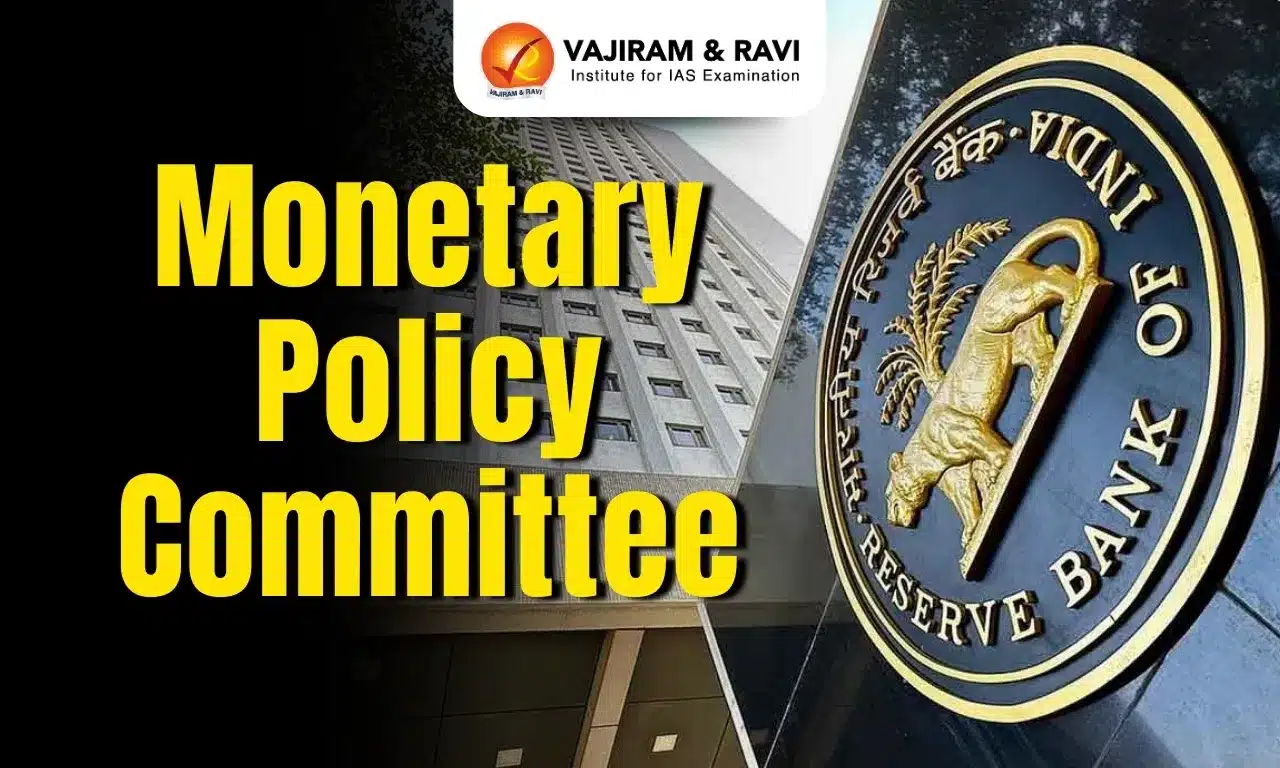Monetary Policy Committee Latest News
Reserve Bank of India (RBI) recently appointed Indranil Bhattacharyya, executive director, as a member of the Monetary Policy Committee (MPC).
About Monetary Policy Committee
- Monetary policy refers to the use of monetary instruments under the control of the central bank to regulate magnitudes such as interest rates, money supply, and availability of credit with a view to achieving the ultimate objective of economic policy.
- The RBI is vested with the responsibility of conducting monetary policy. This responsibility is explicitly mandated under the Reserve Bank of India Act, 1934.
- The primary objective of monetary policy is to maintain price stability while keeping in mind the objective of growth. Price stability is a necessary precondition to sustainable growth.
- In May 2016, the RBI Act, 1934, was amended to provide a statutory basis for the implementation of the flexible inflation targeting framework.
- The amended RBI Act also provides for the inflation target to be set by the government of India, in consultation with the Reserve Bank, once in every five years.
- The Monetary Policy Committee (MPC) constituted by the central government under Section 45ZB determines the policy interest rate required to achieve the inflation target.
- Function: The MPC is entrusted with the task of fixing the benchmark policy rate (repo rate) required to contain inflation within the specified target level.
- The MPC replaced the previous arrangement of the Technical Advisory Committee.
- Composition:
- MPC will have six members: the RBI Governor (Chairperson), the RBI Deputy Governor in charge of monetary policy, one official nominated by the RBI Board, and the remaining three members would represent the Government of India.
- The external members hold office for a period of four years.
- The quorum for a meeting shall be four Members, at least one of whom shall be the Governor and, in his absence, the Deputy Governor, who is the Member of the MPC.
- The MPC takes decisions based on a majority vote. In case of a tie, the RBI governor will have the second or casting vote.
- The decision of the MPC would be binding on the RBI.
- RBI’s Monetary Policy Department (MPD) assists the MPC in formulating the monetary policy.
- The MPC is required to meet at least four times in a year.
Source: LM
Last updated on November, 2025
→ Check out the latest UPSC Syllabus 2026 here.
→ Join Vajiram & Ravi’s Interview Guidance Programme for expert help to crack your final UPSC stage.
→ UPSC Mains Result 2025 is now out.
→ UPSC Notification 2026 is scheduled to be released on January 14, 2026.
→ UPSC Calendar 2026 is released on 15th May, 2025.
→ The UPSC Vacancy 2025 were released 1129, out of which 979 were for UPSC CSE and remaining 150 are for UPSC IFoS.
→ UPSC Prelims 2026 will be conducted on 24th May, 2026 & UPSC Mains 2026 will be conducted on 21st August 2026.
→ The UPSC Selection Process is of 3 stages-Prelims, Mains and Interview.
→ UPSC Result 2024 is released with latest UPSC Marksheet 2024. Check Now!
→ UPSC Prelims Result 2025 is out now for the CSE held on 25 May 2025.
→ UPSC Toppers List 2024 is released now. Shakti Dubey is UPSC AIR 1 2024 Topper.
→ UPSC Prelims Question Paper 2025 and Unofficial Prelims Answer Key 2025 are available now.
→ UPSC Mains Question Paper 2025 is out for Essay, GS 1, 2, 3 & GS 4.
→ UPSC Mains Indian Language Question Paper 2025 is now out.
→ UPSC Mains Optional Question Paper 2025 is now out.
→ Also check Best IAS Coaching in Delhi
Monetary Policy Committee FAQs
Q1. Who sets India’s inflation target?+
Q2. How many members are there in the Monetary Policy Committee (MPC)?+
Q3. Who chairs the Monetary Policy Committee?+
Tags: monetary policy committee prelims pointers upsc current affairs upsc prelims current affairs

















